The fate of the country is inseparable from the political activity of the president. Using his convictions and competence, the head can make the state a world center of attraction or lead it into a state of chaos and bankruptcy. Throughout the history of sovereign Cyprus, this high office has been held by different people. Including true patriots united by the goal of undoing the impact of the tragic events of 1974. This blog presents the country's legitimate leaders from independence to the present day. But first a few words about the status of the President himself.
According to the Constitution of the Republic of Cyprus, the President is the Head of State. He is elected by direct general and secret ballot for five years with the possibility of re-election for a second term.
The post of the President of Cyprus combines a triune power: the Head of State, the Head of Government, and the Commander-in-Chief of the National Guard. The combination of the head of state and government in one person is unique in the European Union, which makes Cyprus the only unified country with a full presidential form of government.
First President - Archbishop Makarios III (born Michael Christodoulou Mouskos)
Date of birth: August 13, 1913 (village of Panayia), years of administration: 1960 - 1977.
The future president of independent Cyprus left home at the age of 13 and became a novice at the monastery in Kykkos. He received his secondary education at the Pankyprian Gymnasium in Nicosia, and during World War II he studied theology and law at the University of Athens and Boston University. As a student, Michael Mouskos was elected Bishop of Kition and received the ecclesiastical name Makarios, meaning "happy, blessed." Upon his return home, he assumed the high office of Archbishop of Cyprus, headed the Orthodox Church, and became a national leader. In the 1950s, Vladyka expressed his commitment to enosis - the unification of Cyprus with Greece. In addition, he openly advocated the independence of Cyprus from Britain, while the government of that country did not want to lose the colony, which served as a headquarters in the Middle East. Makarios' political views were heavily criticized in the British press, and a short time later he was kidnapped by British special forces while boarding a flight at Nicosia airport. The archbishop was exiled to the Seychelles.
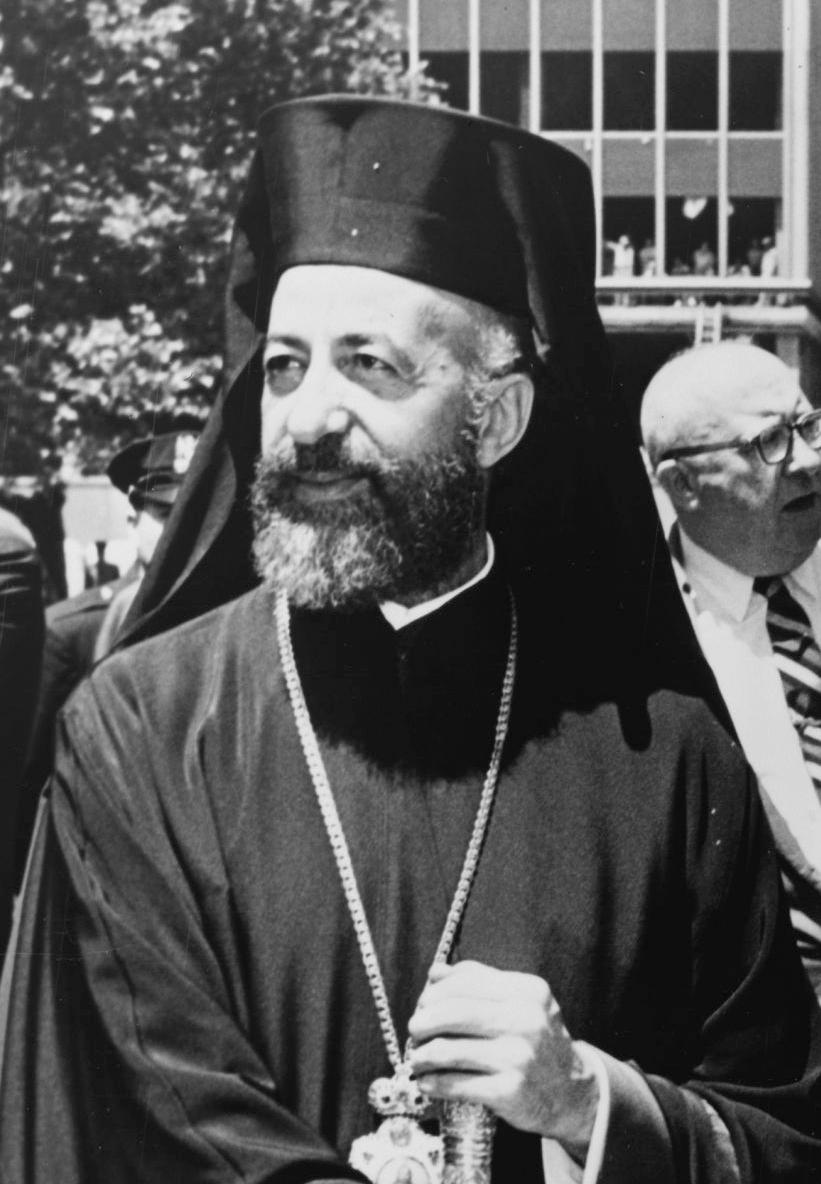
A year later, the freed Makarios moved to Athens, as entry to his homeland was closed to him. During this period Greece renounced enosis in favor of independence for the island, and in 1958 the Zurich Agreement was signed, which became the basis for Cyprus' independence. In March 1959, the archbishop returned home, and on December 13, presidential elections were held, in which he won a convincing victory.
By this time, the newly elected president had abandoned the idea of union with Greece and adopted a policy of non-alignment and independence, while developing good neighborly relations with Greece and Turkey. Due to the growing crisis in the country, the next presidential election was held only in 1968, which was again won by Makarios III. Re-entering office, he reaffirmed the impossibility of solving the problem by force and called for peaceful coexistence of communities in a unitary state. However, the flywheel of civil strife had already been set in motion.
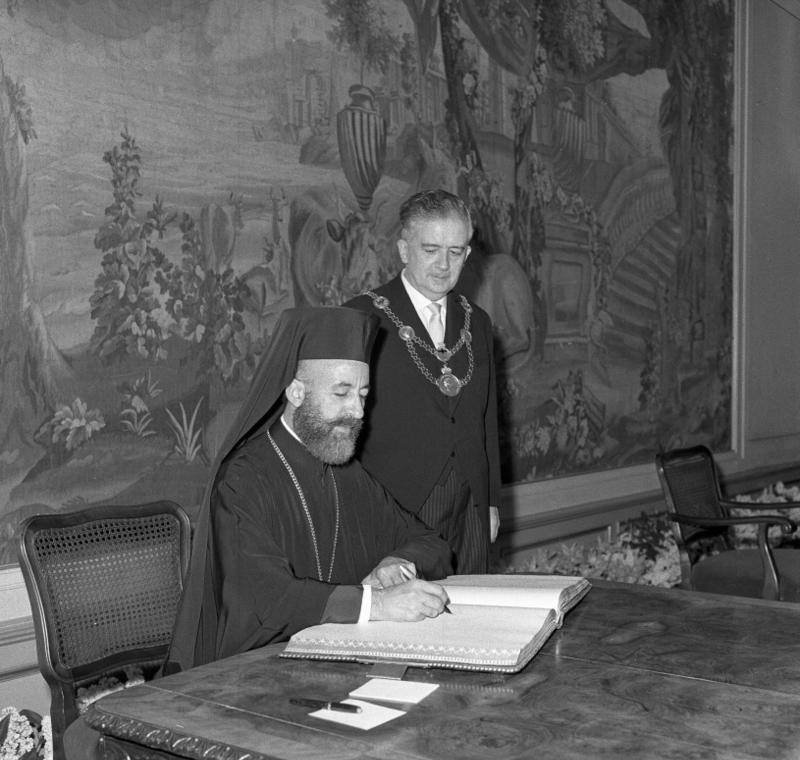
In May 1974, Greek officers who held command positions in the National Guard of Cyprus, together with activists of the nationalist organization EOKA carried out a coup d'état. The President miraculously managed to save himself, but he was forced to leave the country. And on July 20 of the same year, during the illegal rule of supporters of unification with Greece, initiated Turkish invasion of the island.
Five months later Makarios achieved world recognition of the legitimacy of his government as the executive of an indivisible state. Upon returning home, he focused on restoring the territorial integrity of Cyprus, but failed to unify the country. Makarios died of a heart attack on August 3, 1977 and was buried on Mount Troni near the Kykkos Monastery. In honor of the first President, a bronze statue was erected in front of the Archbishop's Palace in Nicosia, which was later moved to his burial place. Assessing the history of Cyprus from the perspective of today, it is obvious that President Makarios III suffered the most severe trials and changes.
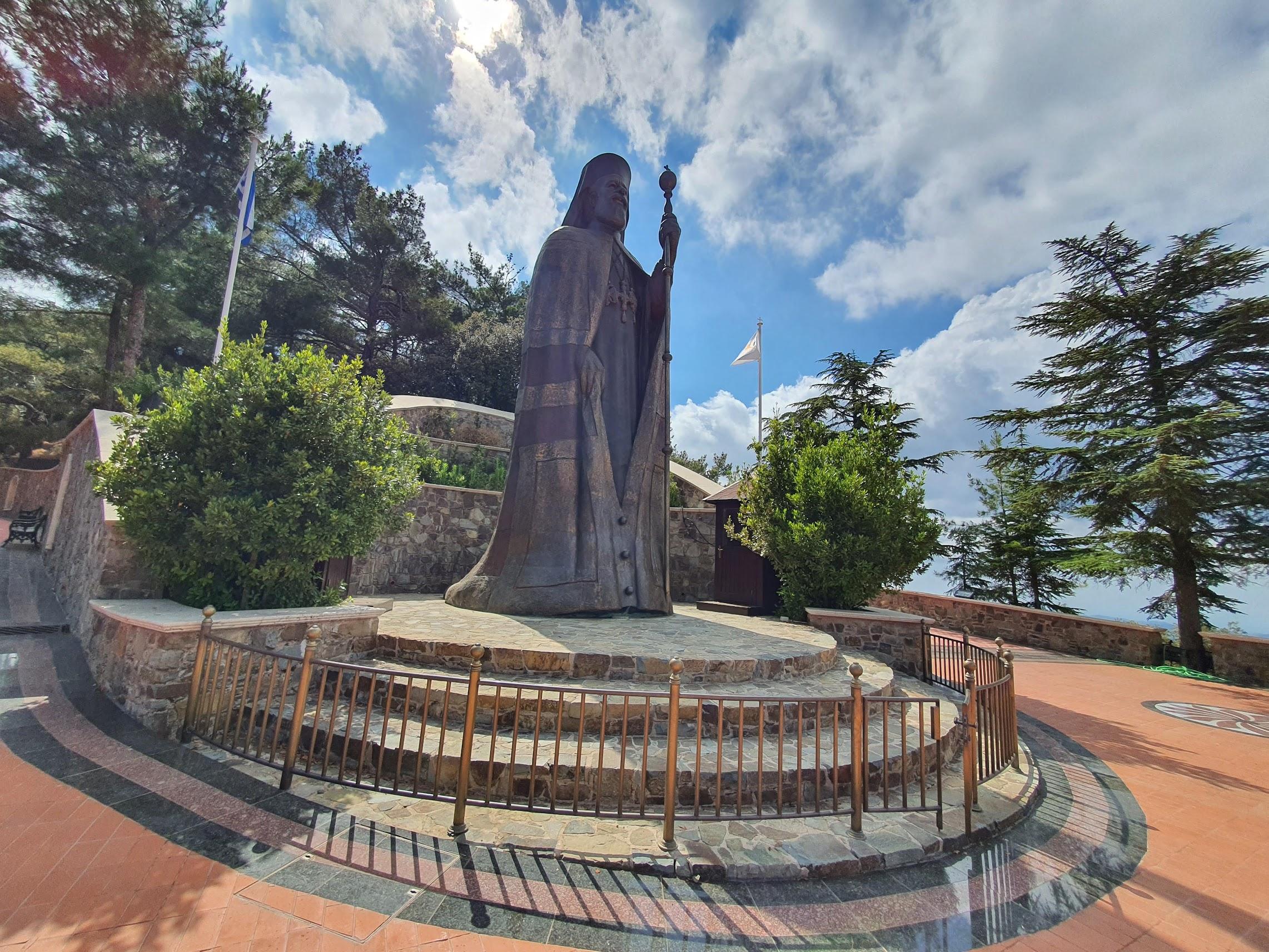
Second President - Spyros Kyprianou
Date of birth: October 28, 1932 (Limassol), years of administration: 1977 - 1988.
Spyros Kyprianou received his economic and legal education in England. Here he also launched his political career when he organized and headed the Union of Cypriot Students in Britain (EFEKA). In the 50s, Spyros took an active part in the struggle for Cypriot independence, for which he was persecuted by the British colonial authorities. With his diplomatic skills, he served as secretary to Archbishop Makarios and represented the Cypriot Orthodox Church in London and New York. From 1960 to 1972, Spyros Kyprianou served as Minister of Foreign Affairs of Cyprus. In this capacity, he chaired a specialized committee in the Council of Europe and agreed with the USSR to provide military assistance to his country.
Once again showing his organizational skills, the foreign minister founded the Democratic Center-Right Party, which won the majority of votes in the parliamentary elections, and he headed the Parliament of Cyprus. After the death of the first President Makarios III, according to the Constitution, Kyprianou acted as his successor and was elected twice as the first person of the state in the future. In this position, he tried to strengthen international ties and gain support for a solution to the problem of the divided island. At the end of his presidential term, Spyros Kyprianou became Speaker of the House of Representatives but was forced to resign for health reasons. He died of a serious illness in March 2002. The second President of Cyprus, for his activities, was awarded and honored by many countries of the world.
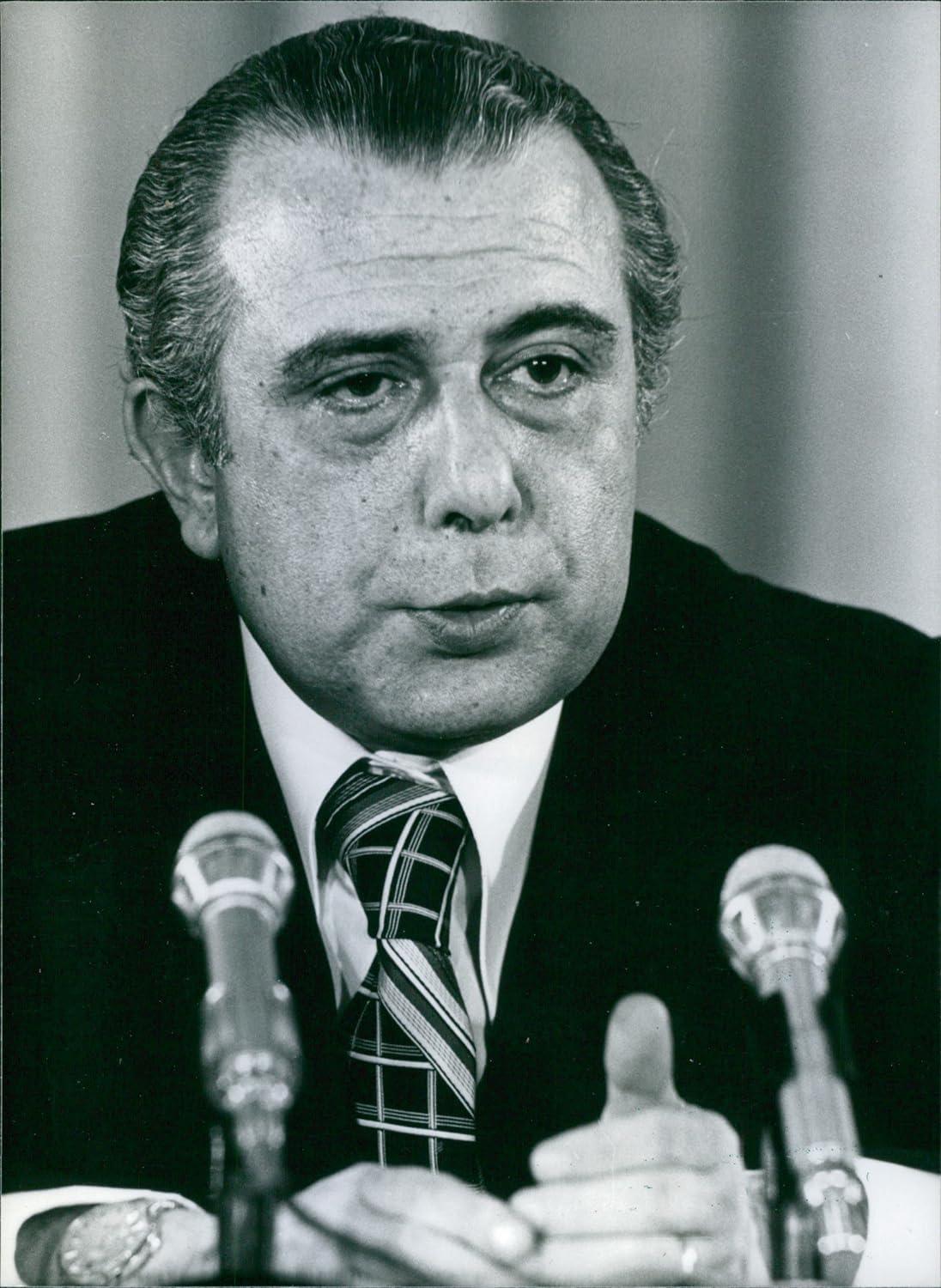
Third President - Georgios Vassiliou
Date of birth: May 20, 1931 (Famagusta), years of administration: 1988 - 1993.
Georgios Vasiliou studied economics at the University of Budapest and continued his education in London. Upon returning to his homeland, he organized the Middle East Market Research Center in Nicosia. In the 1988 presidential elections, Vassiliou ran as an independent candidate and won in the second round. His years in office were marked by significant economic growth of the country and active work on solving the problem of the divided island.
During an official visit to the Russian Federation, the third President of Cyprus signed fundamental bilateral agreements on economic and humanitarian cooperation. After losing the 1993 elections, Vassiliou did not leave big politics and founded the Free Democratic Movement party. Between 1998 and 2003, he led negotiations with the European Union on Cyprus' accession to the organization and became a member of the European Committee for Tolerance and Mutual Respect. Georgios Vassiliou was awarded the Order of the Nile, the highest honor of the Republic of Egypt. An autobiography entitled "Odyssey" was written about the main events of his life before the presidency.
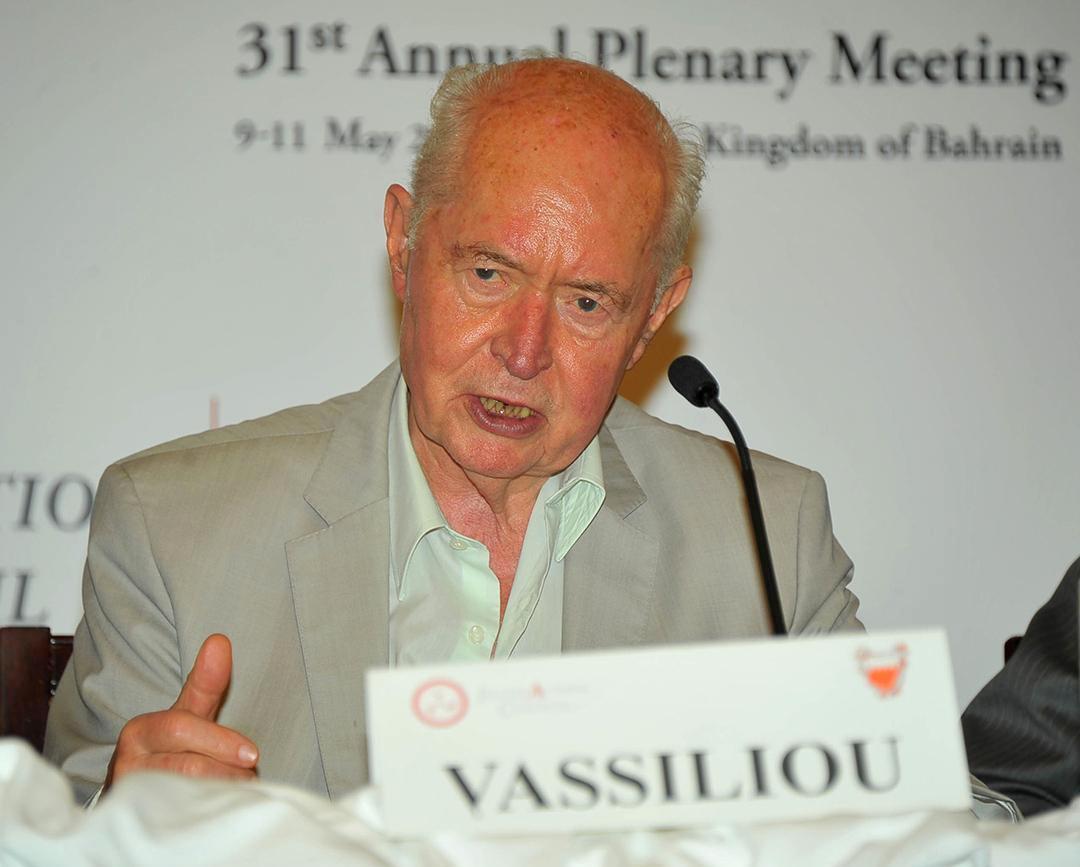
The fourth president is Glafkos Kliridis
Date of birth: April 24, 1919 (Nicosia), years of administration: 1993 - 2003.
Glafkos Cliridis received his primary education at Pankyprus Grammar School and his higher education at the University of London. At the outbreak of World War II, he enlisted as a volunteer in the British Royal Air Force. In the summer of 1942, the pilot was shot down and taken prisoner, where he was held until the end of the war. When peace came, Glafkos continued to study law on the shores of Foggy Albion and later began practicing law in his homeland. During the period of the liberation struggle of the Cypriot people against the British colonizers, Kliridis was a lawyer for the arrested members of the underground organization EOKA. In 1959, he became Minister of Justice of the Transitional Government of Cyprus and was elected Speaker of Parliament at the beginning of the island's independence.
After the 1974 military putsch, Kliridis served as acting president of Cyprus, and after the return of Makarios, he continued to lead the parliament until the founding of the Democratic Union Party. Glafcos Cliridis ran as a candidate for presidential elections six times, but won only twice, in 1993 and 1998. The fourth president of Cyprus was one of the last European leaders - veterans of the Second World War and for his services was awarded, among others, the Grand Cross of the national Greek Order of the Savior. With his direct involvement, a popular referendum to solve the Cyprus problem was prepared and the Cypriot National Guard was significantly strengthened. During his tenure, the President paid special attention to relations with Russia and paid four official visits to Moscow. Glafcos Kliridis died in 2013 at the age of 94.
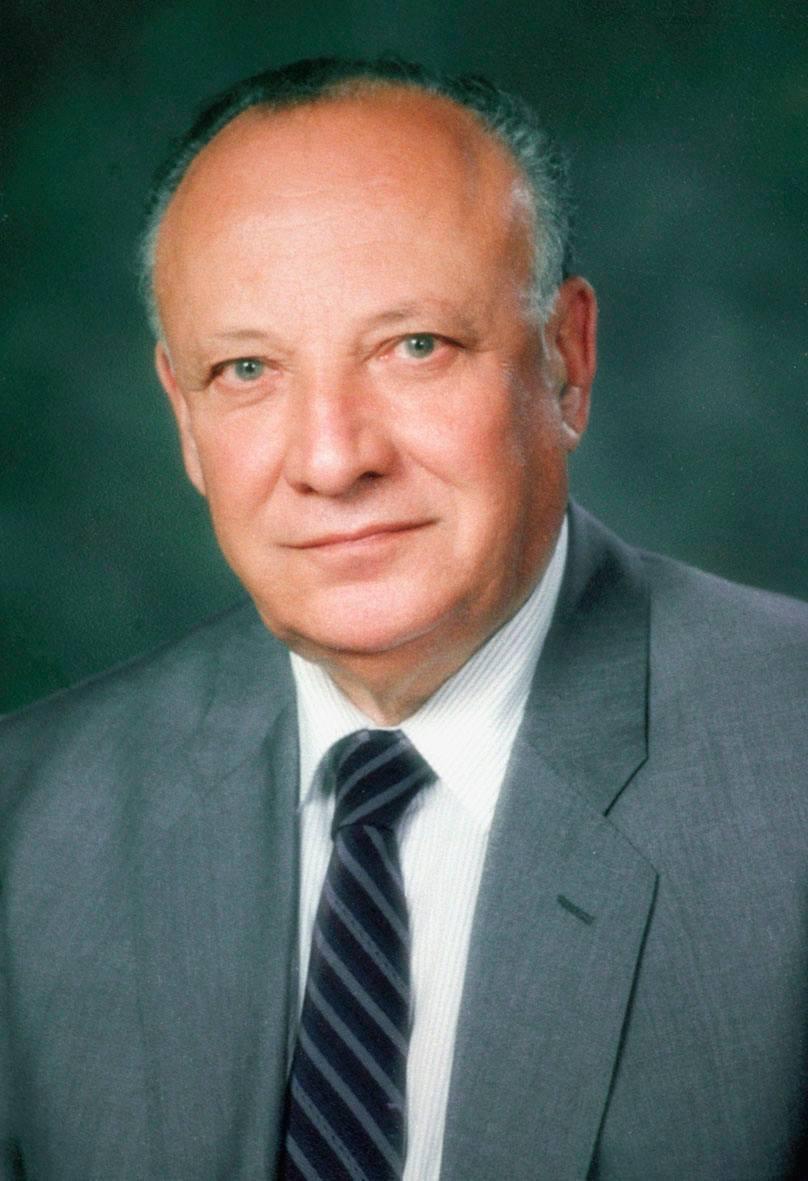
The fifth president is Tassos Papadopoulos
Date of birth: January 7, 1934 (Nicosia), years of administration 2003 - 2008.
Tassos Papadopoulos, similar to his predecessor, graduated from Pankipras Grammar School and studied law at King's College London. Since the late 50s, he was active in the liberation movement and was part of the drafting team for the Constitution of Cyprus. During the 1974 military coup, Papadopoulos was imprisoned and released on the eve of the Turkish invasion of the island.
As he rose through the ranks, he served as Speaker of the House of Representatives, then was elected as a member of parliament for the Democratic Party and soon became its leader. In February 2003, Tassos Papadopoulos assumed the presidency after a convincing election victory. In this position, he opposed the Cyprus settlement plan proposed by UN Secretary-General Kofi Annan. The essence of the plan was the creation of a new state, the United Cyprus Republic, which would include Greek and Turkish autonomies.
After that, many experts and opinion leaders said that the president's position turned out to be a big political mistake and one of the reasons for the failure of the referendum on the issue. Papadopoulos has repeatedly visited Russia and headed the Cyprus-Russia Friendship Society. In particular, he took part in the celebrations of the 300th anniversary of St. Petersburg. Tassos Papadopoulos was defeated in the next elections. During his tenure as President, he was honored by several European countries. In 2008, the fifth president of Cyprus died.

Sixth President - Demetris Christofias
Date of birth: August 29, 1946 (village of Kato Dikomo), years of administration 2008 - 2013.
Dimitris Christofias studied at the Lyceum of Commerce in Nicosia and participated in youth political movements. He received his higher education and doctorate in history from the Institute of Social Sciences in Moscow. Later on, Dimitris built a political career in the AKEL party, became its head, and was twice elected President of the Cypriot Parliament. In February 2008, Demetris Christofias won the presidential election. The next day he addressed his voters in Nicosia and promised to unite the northern and southern parts of the island. In addition, the president said he would not allow Cyprus to join NATO.
Christofias participated in the first official meeting with the head of the Turkish community in Cyprus. The parties agreed to resume the process of negotiating a peace settlement on the island and to open a border checkpoint in the center of Nicosia. In May 2012, Demetris Christofias addressed the nation, where he announced his decision not to run in the next presidential elections. He cited the lack of progress in solving the Cyprus problem as the main reason.
However, there is an objective opinion, according to which the popularity of the sixth president of Cyprus significantly decreased after the explosion of ammunition at the naval base Evangelos Florakis, which killed 13 people. Following this tragedy, a protracted economic crisis was born in the country. Thus, to date, Christofias remains the only Cypriot president who has not sought re-election. Nevertheless, during his tenure, he has been honored with several international awards, including three Russian ones. Demetris Christofias passed away in 2019 at the age of 72.
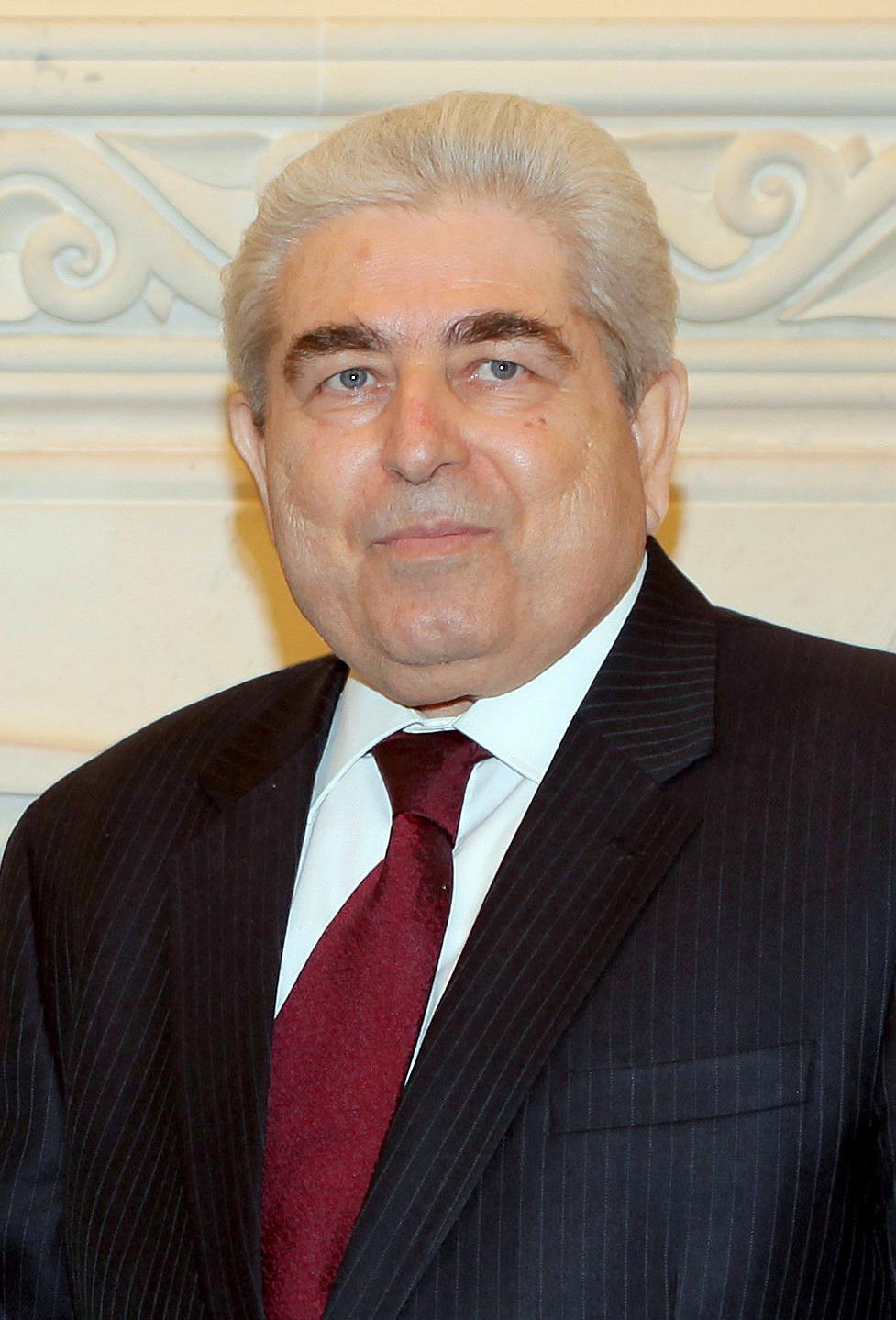
The seventh president is Nikos Anastasiadis
Date of birth: September 27, 1946 (Limassol), years of administration: 2013 - 2023.
Nikos Anastasiadis graduated from the Faculty of Law of the University of Athens, then continued his postgraduate studies at University College London, specializing in Shipping Law. Upon returning to his homeland, Nicos founded the law firm Nicos Chr. Anastasiades & Partners in Limassol. In 1981 he was elected to Parliament from the Democratic Party, which he led 15 years later.
Anastasiades was considered an ardent supporter of Kofi Annan's plan to resolve the unification of Cyprus. In 2011, Parliament voted in favor of the country joining NATO, but then-President Demetris Christofias vetoed the resolution. He attributed his decision to the fact that participation in the bloc could have hindered a peaceful settlement of the Cyprus issue. Anastasiades, for his part, promised that Cyprus would become a member of the North Atlantic Alliance if he became the next president. Indeed, in 2013, Nicos Anastasiades became the master of the office of the head of state.
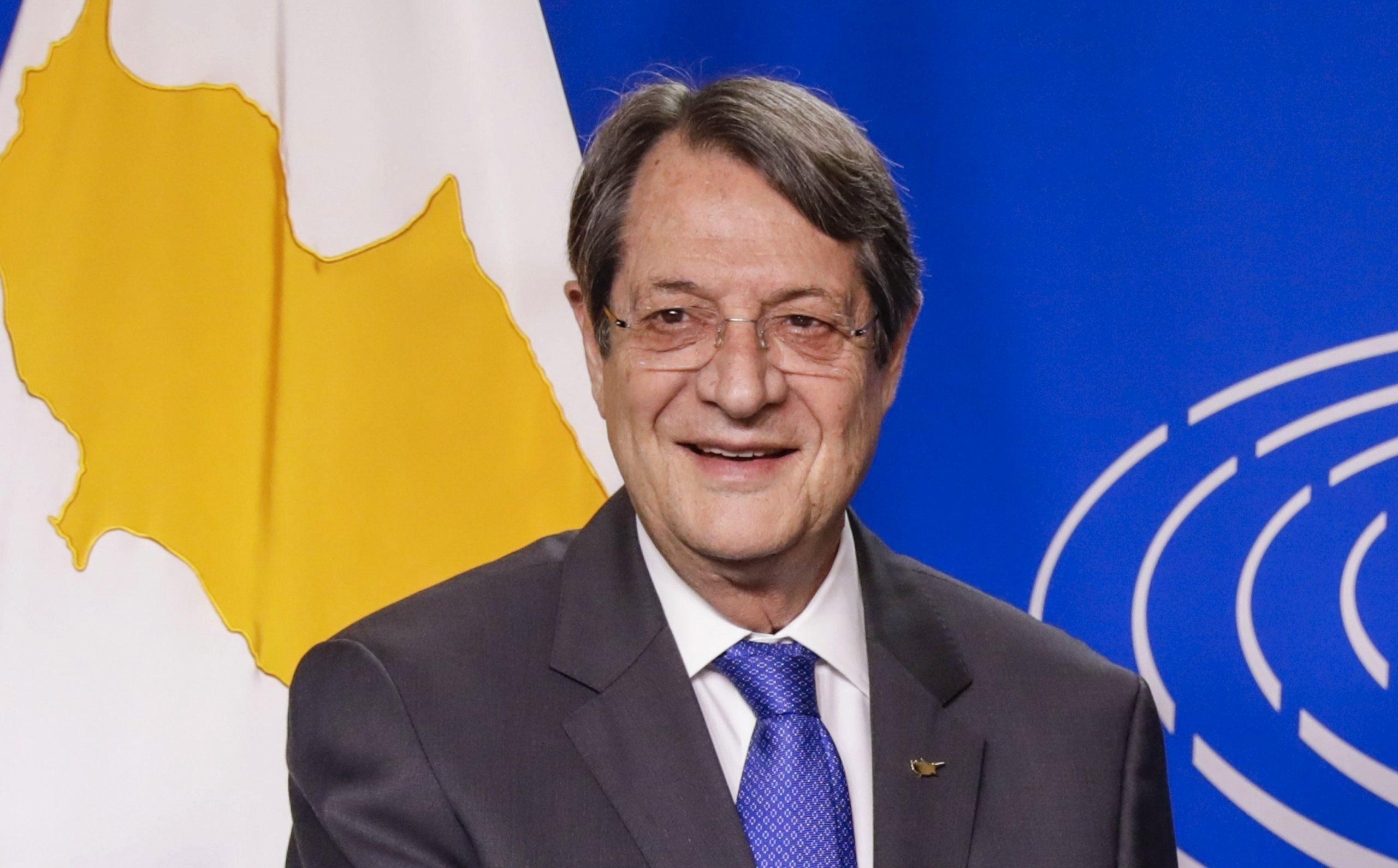
The newly elected president inherited a serious economic crisis, which had to be overcome by attracting foreign investment and cutting public spending. In the process of cooperation with the EU and the IMF, the head of Cyprus signed an agreement to provide financial assistance to the country. After a while, this agreement had both positive and negative consequences, such as the closure of several key banks and the forced suspension of the national airline Cyprus Airways.
Anastasiades introduced a new economic regulation in the country - the minimum wage. Nicos Anastasiades signed memorandum with Israel and Egypt as part of regional cooperation and was re-elected for a second term in 2018. During the lockdown, the leading tourism industry went completely dormant, negatively affecting the country's economy. Nevertheless, Cyprus came out of this situation with honor, ranking fifth in the global coronavirus index among 98 countries. Until February 2022, Anastasiades maintained friendly relations and made several visits to Russia. After this date, for known reasons, the official relations between the countries underwent some changes. Nikos Anastasiadis holds a degree in law and holds the highest honors of several states and governments.
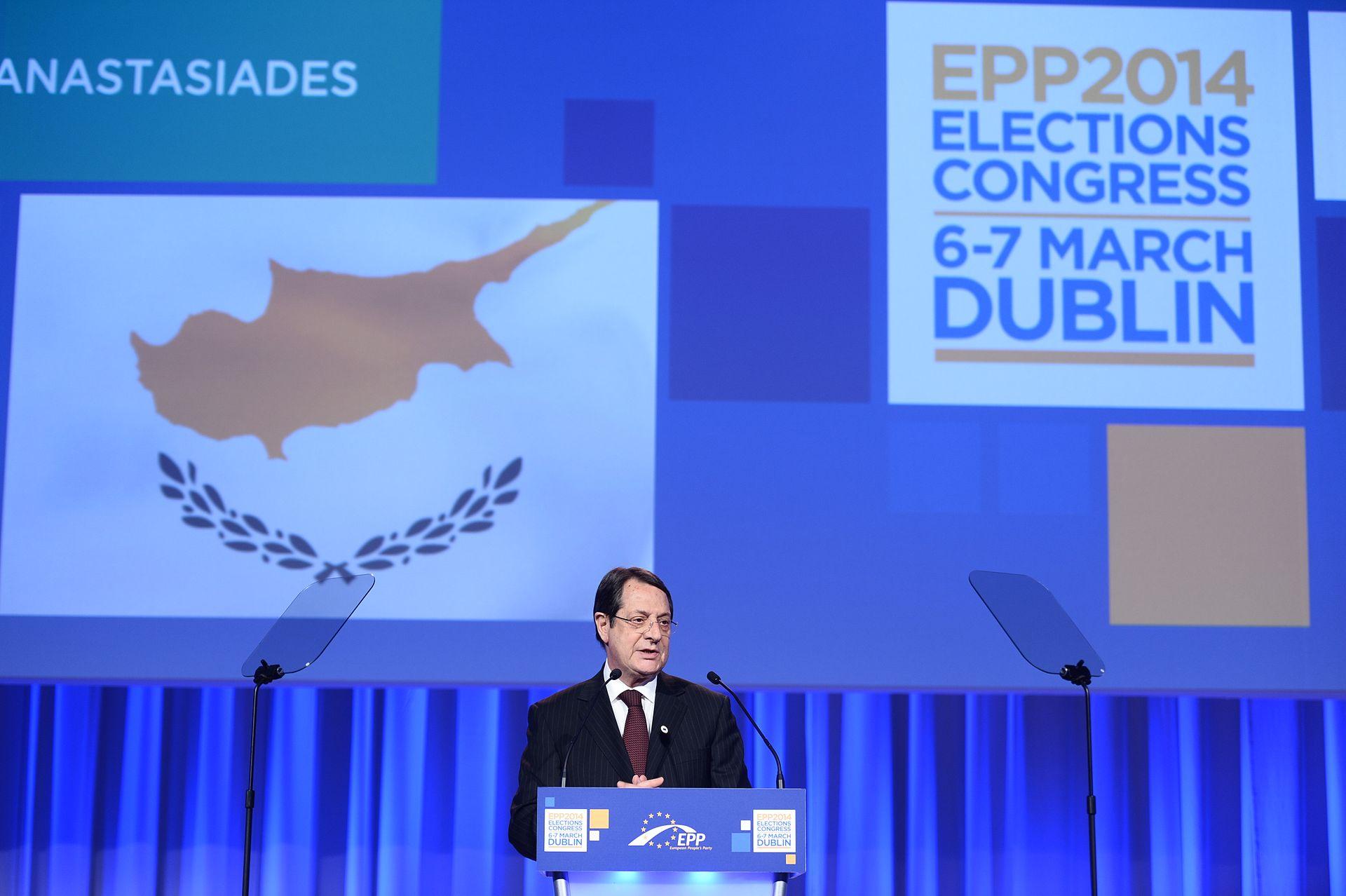
The eighth and current president is Nikos Christodoulidis
Date of birth: December 6, 1973 (Paphos), inauguration date: February 2023.
Nicos Christodoulidis graduated from the Lyceum of Archbishop Makarios and completed two years of military service in the Cypriot National Guard. He earned his undergraduate degree in Political Science, Economics, and New Greek Studies from Queens College of the City University of New York (1997). Christodoulidis went on to do diplomatic research in the United States, earned a degree in the same subject from the University of Malta, and finally became a doctoral candidate at the Department of Political Science at the University of Athens. Nikos Christodoulidis entered the diplomatic service in 1999, where he held positions of responsibility, including Spokesman of the Cypriot Mission to the EU and Consul General of the Cyprus High Commission in the UK.
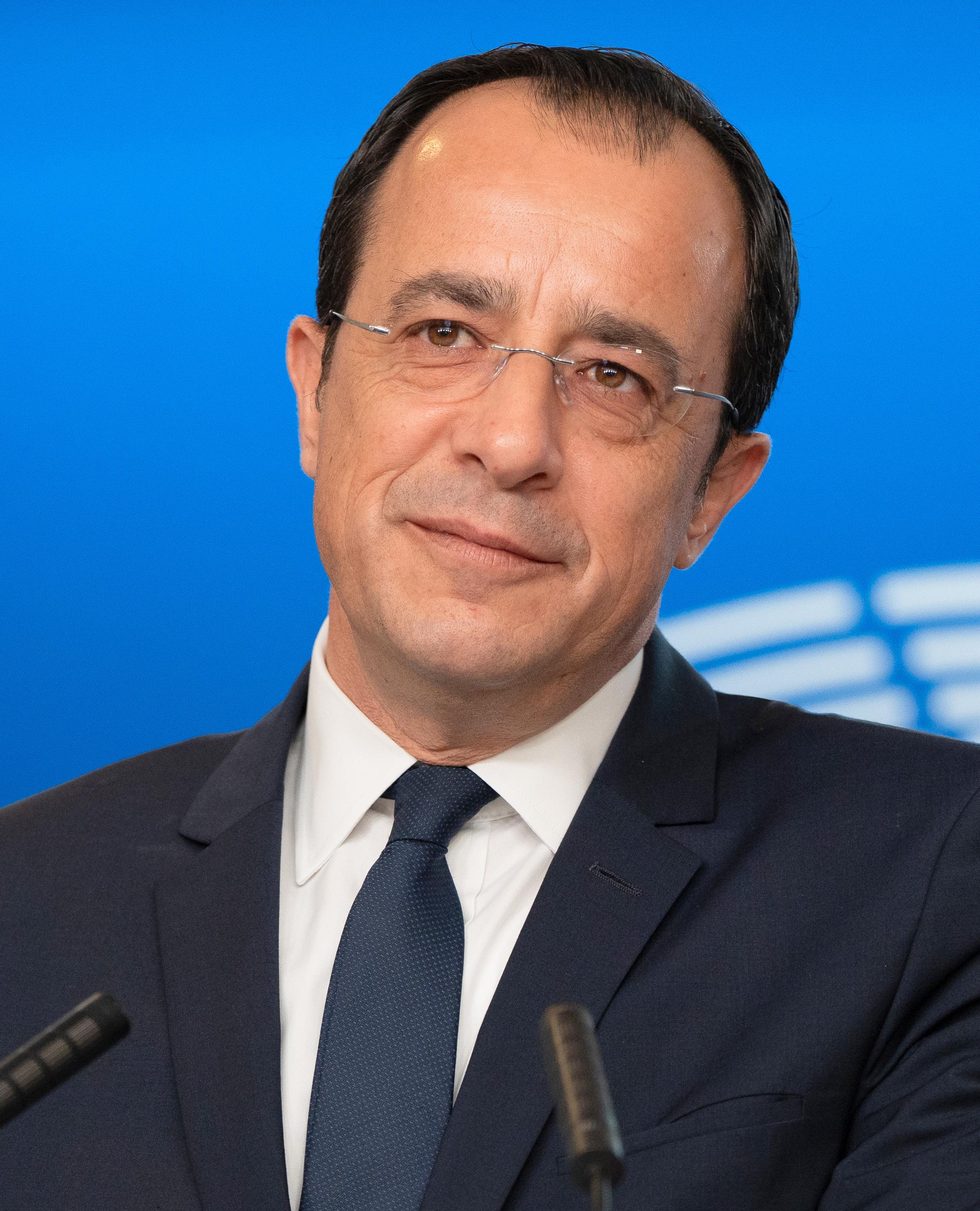
In 2018, re-elected Nicos Anastasiades appointed Christodoulidis as Foreign Minister of the Republic of Cyprus. He proclaimed the reunification of the country as his number one priority in his post. In addition, the foreign minister made efforts to strengthen the cooperation of the Mediterranean powers, appealed to the UN and the EU leadership with a request to resume the stalled peace talks on Cyprus. Christodoulidis sharply condemned the Armenian-Azerbaijani armed conflict and called for de-escalation in the region.
In 2022, he officially announced his candidacy for the presidency as an independent candidate and became the country's first face on February 28, 2023. In the intervening period, the government increased the minimum wage in the country from 940 to 1 thousand euros per month. The main efforts of the head of state, in these difficult times, are aimed at ceasing the ceasefire in the Arab-Israeli armed conflict and preventing a humanitarian catastrophe. For this purpose, Nikos Christodoulidis proposed to accumulate international aid on the island and send it to Gaza through the port of Larnaca. This endeavor shows the responsiveness and solidarity of the President of the Republic personally and the entire Cypriot people.
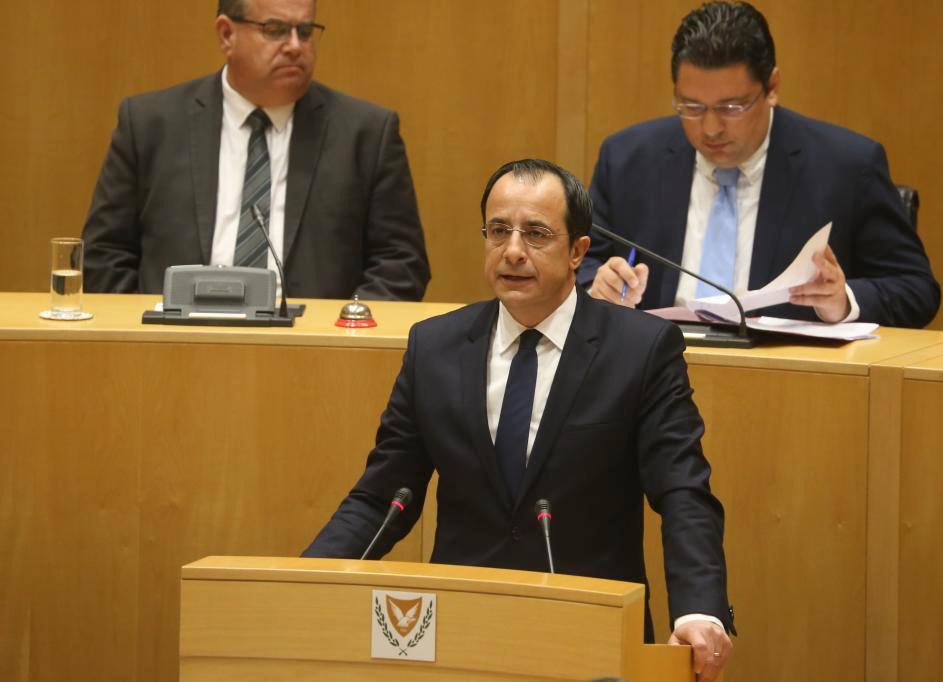
Read also:

